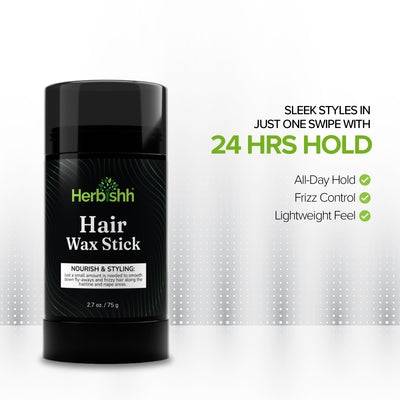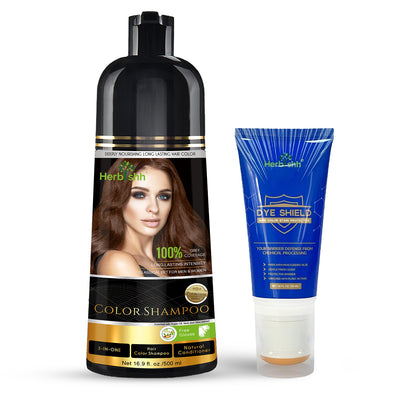12 Myths About Hair Oil You Probably Still Believe

Hair oil is like that one family member who gets way too much credit, trusted for every problem, from split ends to breakups. We’ve grown up hearing stories about “miracle” oils that can stop hair fall overnight, make hair grow faster than weeds, or fix damage in one go. However, not all of them are true; most of it is a myth about hair oil.
Yes, hair oil has real benefits, unquestionably. Some of these hair oil myths are the reason people end up disappointed after trying yet another hair oil treatment. Whether it’s hair oil for dry hair, hair oil for frizzy hair, or that fancy hair oil with argan oil you picked up online, the results depend on how and why you’re using it.
This blog is about breaking those myths wide open because a hair oil routine is still one of the simplest, most effective ways to care for your scalp, but only if you stop believing the wrong stories.

Myth 1: Hair Oil Stops Hair Fall Completely
This is the hair oil myth almost everyone believes at some point. The idea that a few scalp massages will make hair fall vanish sounds amazing, but it’s not that simple. Hair fall can be caused by stress, hormones, or even a lack of nutrition. Oil alone can’t fix all of that.
Truth: A good hair oil for growth will definitely help. It strengthens roots, nourishes the scalp, and reduces breakage. However, if your hair loss is heavy or ongoing, you’ll need to consider your diet, lifestyle, and overall health as well.
Myth 2: The Longer You Keep Oil, the Better the Results
People often think leaving oil overnight or for days will give them supercharged results. In reality, your hair and scalp can only absorb so much. After a few hours, oil sits there, collecting dust and making your scalp greasy.
Truth: Two to three hours is more than enough for a hair oil treatment to do its job. Longer doesn’t mean better; it just means stickier hair and more shampoo later.
Myth 3: Any Oil Works for Every Hair Type
This is another common hair oil myth. We’ve all been told that “coconut oil works for everything” or “one oil suits everyone.” But just like skin types, hair types are different. What works beautifully for curly, dry hair might weigh down fine, straight strands.
Truth: Choose oils that suit your needs. Hair oil with argan oil is perfect for frizzy hair, castor oil works well if you’re targeting growth, and lighter oils are better if your scalp gets greasy easily.

Myth 4: Oil Fixes Split Ends
If only it were that easy. Split ends are damaged hair fibers; no amount of oil can glue them back together. Applying oil may make them look smoother, but it won’t repair the actual damage.
Truth: The only real fix for split ends is trimming them off. Oil helps prevent more damage, but it’s not a magic repair kit.
Myth 5: Oil Alone Can Replace Conditioner
A lot of people skip conditioner, thinking, “I already oiled my hair, why do I need it?” This is another misleading hair oil myth. Oil nourishes your scalp and adds shine, but conditioner locks in moisture and protects hair after washing.
Truth: They’re not interchangeable. A proper hair oil routine plus conditioner is what keeps hair strong, soft, and manageable.
Myth 6: Leaving Oil Overnight Gives Double the Benefits
It feels like a tradition, oil your hair at night and wash it the next morning. While it feels relaxing, the truth is your scalp and hair can only absorb a limited amount of oil. After a couple of hours, the benefits wear off, and the excess crude sits there, even causing backfires that clog pores, leave greasy pillows, and stick dirt to your scalp, sometimes leading to dandruff flare-ups.
Truth: A few hours is enough for your hair to soak in the nutrients. Overnight oiling isn’t necessary; it may be a comfort, but it's not a scientific practice.

Myth 7: Oil Alone Can Cure Dandruff
Many people assume that since oiling reduces dryness, it must also fix dandruff. But dandruff isn’t always caused by a dry scalp; it's often the result of a yeast-like fungus or irritation. In fact, applying too much oil can make dandruff worse by giving that fungus more to feed on.
Truth: Oil can calm dryness, but it’s not a cure for dandruff. Use it as part of your hair oil routine, but pair it with the right shampoo or treatment if flakes are your concern.
Myth 8: If My Scalp Is Naturally Oily, I Don’t Need Hair Oil
If your scalp already produces oil, why add more? But natural sebum and nutrient-rich oils are not the same thing. Sebum can sometimes make your scalp greasy, but it doesn’t provide the targeted benefits of oils like argan, almond, or coconut.
Truth: Even oily scalps benefit from the correct type of oil. Lightweight options, such as hair oil with argan oil, are great for balancing and nourishing without feeling heavy. It’s about choosing the right oil.
Myth 9: Rubbing Oil Harder Into the Scalp Makes It Work Better
We’ve all seen people go wild with scalp massages, thinking the harder they rub, the more the oil “seeps in.” But, overdoing it can irritate your scalp, weaken hair roots, and even cause strands to break. Hair follicles don’t absorb better because of pressure — they absorb based on the oil’s properties.
Truth: Gentle is powerful enough. Light circular motions with your fingertips boost circulation and help spread the oil evenly. You don’t need to attack your scalp; It's a spa massage, not a wrestling match.

Myth 10: More Shine After Oiling Means Healthier Hair
Oiling does make your hair look shinier instantly, but that shine is temporary. It’s just the oil coating the strands, not showing your hair is actually healthier inside. Many mistake this glossy look for “improvement,” but once you wash the oil out, you may notice the same dryness.
Truth: Real hair health isn’t about temporary shine; it's about strength, elasticity, and reduced breakage. Oil contributes to that, especially when part of a consistent hair oil routine, but don’t let instant shine fool you.
Myth 11: The More Expensive the Oil, the Better It Works
It’s tempting to believe that a fancy bottle with a high price tag will automatically give you better results. But the truth is that what matters most are the ingredients and how they match your hair type.
Truth: Don’t fall for the price tag trap. The best hair oil is the one that suits your scalp, texture, and needs whether that’s for growth, frizz control, or dry hair.
Myth 12: If It Worked for My Grandma, It’ll Work for Me
Many of us have heard stories about a single “miracle” oil that made our grandmother’s hair thick and long. While those remedies often worked for them, our lifestyles, diets, and environments are entirely different now. Pollution, chemical styling, stress, and even water quality all affect hair differently today. What worked perfectly in the past may no longer suit your hair type or needs.
Truth: Respect the wisdom passed down, but adapt it to modern needs. Your grandma’s coconut oil recipe may still be helpful, but consider finding what works best for your hair type for even better results.

Conclusion
Hair oil has been praised, misunderstood, overused, and sometimes even blamed for things it can’t control. The truth is, it’s neither a miracle potion nor a waste of time; it's just one piece of the puzzle.
So instead of chasing and believing every hair oil myth, focus on making your oil work with you. Pair it with smart care, the right products, and a little patience. That’s when it stops being just another bottle on your shelf and actually becomes a game-changer for your hair.
So, what did we learn? It’s not about the oil itself, it’s about how you use it.
















Leave a comment